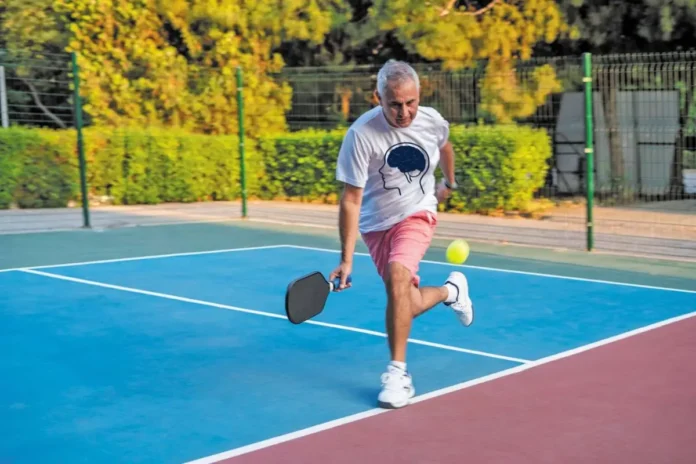Pickleball Boosts Your Brain: Pickleball, the fastest-growing sport in the U.S., offers more than just physical benefits—it may also improve brain health. Neurophysiologist Louisa Nicola, founder of Neuro Athletics, explains how the game enhances cognitive function through proprioceptive training, which strengthens coordination, reaction time, and overall brain performance.
Pickleball’s Growth and Appeal
Pickleball combines elements of tennis, ping pong, and badminton. According to the Sports & Fitness Industry Association (SFIA), the sport has been the fastest-growing in the U.S. for two years straight, with over 4.8 million players nationwide. Its accessibility, low-impact nature, and social aspect make it a popular choice for people of all ages.
How Pickleball Supports Brain Function
Nicola, who studies the relationship between neuroscience and physical performance, highlights the importance of proprioceptive training. “There is this sub-category of exercise which falls under cognitive exercise [called] proprioceptive training,” she shared on the mindbodygreen podcast. “It involves all of your senses: light, sound, touch… everyone should be involved in this type of exercise.”
Proprioception refers to the body’s ability to sense its position in space. Training these abilities can improve mobility, balance, and reduce the risk of falls, especially in older adults. Nicola explains, “You cannot achieve anything without understanding where you are in space and time.”
Connection Between Pickleball and Proprioception
Nicola suggests exercises like throwing a tennis ball against a wall to improve visual acuity, reaction time, and depth perception. While pickleball doesn’t require the same precision as catching a ball, it still challenges hand-eye coordination and spatial awareness. “You have to know where you are in space and time, which is a huge thing for proprioception,” Nicola says.
Social and Mental Health Benefits
Beyond its physical and cognitive advantages, pickleball also fosters social interaction, which plays a key role in preventing cognitive decline. “Loneliness is one of the biggest risk factors of dementia,” Nicola notes. A recent study in the Journal of American Geriatrics Society found that social isolation increases dementia risk by 28%. The community-driven nature of pickleball can help counteract this.
Studies have also linked pickleball to improved mental health, heart health, and balance. Nicola suggests pairing it with brain-supporting supplements for optimal cognitive benefits. As interest in pickleball continues to rise, its positive effects on body and mind make it a valuable sport for people of all ages.
News in Brief: Pickleball Boosts Your Brain
Pickleball is not just a fun sport—it also benefits brain health. Neurophysiologist Louisa Nicola explains that the game enhances proprioception, hand-eye coordination, and reaction time. Additionally, its social aspect helps prevent cognitive decline. With over 4.8 million players in the U.S., pickleball continues to gain popularity for physical and mental well-being.
ALSO READ: Pickleball for Seniors: A Low-Impact Sport with Big Health Benefits

